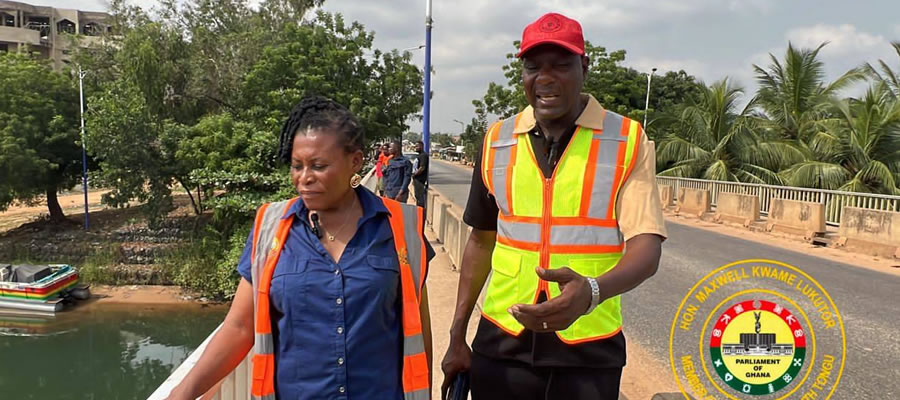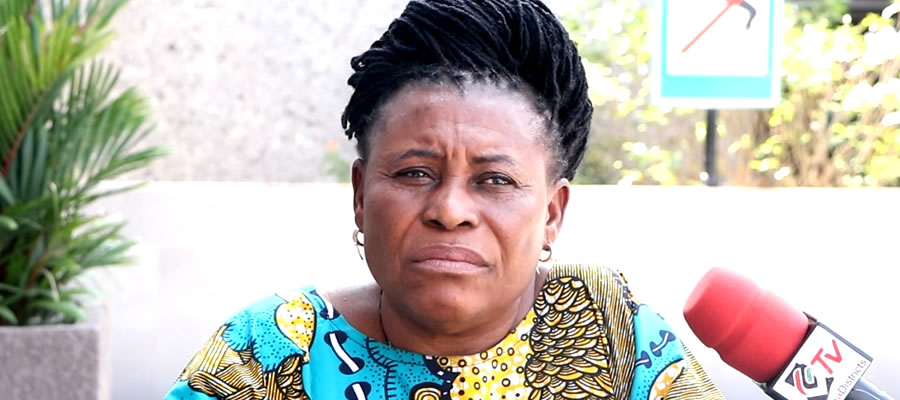

Water
The availability of potable water and sanitation facilities are two major components in assessing how healthy a people are. It is in light of this that an analysis of the existing water and sanitation situation as an input towards the preparation of the 2006-2009 MTDP of the South Tongu District was considered. Only about 40% of the population in the district have access to pipe borne water inn the district. The major sources of drinking water currently in use in the district are rivers, ponds, dugout, pipe borne, borehole; hand dug wells, rain harvesting, stream etc. The Volta River is the source of pipe water for inhabitants of the district. The water is pumped from two head works i.e. Agordome and Kesseve headd works.
The daily water supply according to the Ghana Water Company Limited (Sogakope Office) is 1500 m3 while the daily demand is estimated at 2500m3. Only 46 communities have access to pipe borne water from the Agordome head works while Kesseve supplies water to 14 communities.
Apart from the piping systems, boreholes and wells are another source of potable water. The various Water and Sanitation Committees (WATSAN) in the respective communities manage these communal facilities. There are 20 boreholes in the district out of which 10 are functioning. There are 3 communal wells. The major challenge to the provision of water in the district is the low population densities, long distance of communities from the existing main water line and high salinity of the water table. The district has benefited from six donors funding in the provision of water supply in the district.
Water supply situation as provided by Donors
The district has benefited from six donors funding in the provision of water supply in the district. Details of the provision could be referred to in the table in pdf file attached.
Sanitation:
Solid Waste
Solid Waste disposal poses a serious threat in the district especially in some of the relatively big towns like Sogakope, Sokpoe, Tefle, Kpotame, Dabala, Dabala Junction, Adutor, Vume, Agbakofe, and Agbagorme etc. In these communities there are no designated public refuse dumps hence the practice of indiscriminate disposal of refuse. Few selected households dump household and commercial refuse into excavated pits. Most departments and business premises do not keep refuse bins in their offices. Unlike the large towns, the rural communities normally set a place aside at the outskirt of the community as refuse dump. The community members normally use communal labour to maintain these dumps.
Liquid Waste:
The District Assembly has not acquired any place where sludge from septic tanks is tipped. A private site is now being used for the disposal of liquid waste. Residential premises are engulfing the place presently in use. The DA therefore needs to acquire a permanent place for the purpose.
Disposal of the Dead:
Disposal of the dead is being done at cemeteries. Some few families want to bury their corpses in homes or at unauthorized places. In order to put a stop to this habit, the District Assembly passed circulars to all chiefs, Assembly members, Churches and all concerned people to apply for registration and gazette of all family and public cemeteries already in use. Although some family members have responded to this request, the response has not been encouraging as expected. The District Assembly is therefore intensifying its sensitisation exercise on this issue.
Communal Latrine:
The construction of communal latrine has been the responsibility of the District Assembly. Since there are no planned policies on it, these latrines are built with no emphasis on operation and maintenance. Inadequate education was given to the communities on ownership and management hence no effective maintenance.
From the table in pdf file, there are 30 public toilets in the district. Out of this 10% are water closets. 23.3% are aqua privies and the remaining are KVIP latrines. The high proportion of KVIPs in the district is an indicative of the preference for non-water based sanitary system. The high water table in the district and the scarcity make the development of water based systems beyond the means of households. Another factor that makes the use of the water based system inefficient in the district is the Sack of cesspool emptier.
Date Created : 11/23/2017 4:06:17 AM









 facebook
facebook
 X
X
 Youtube
Youtube
 instagram
instagram
 +233 593 831 280
+233 593 831 280 0800 430 430
0800 430 430 GPS: GE-231-4383
GPS: GE-231-4383 info@ghanadistricts.com
info@ghanadistricts.com Box GP1044, Accra, Ghana
Box GP1044, Accra, Ghana